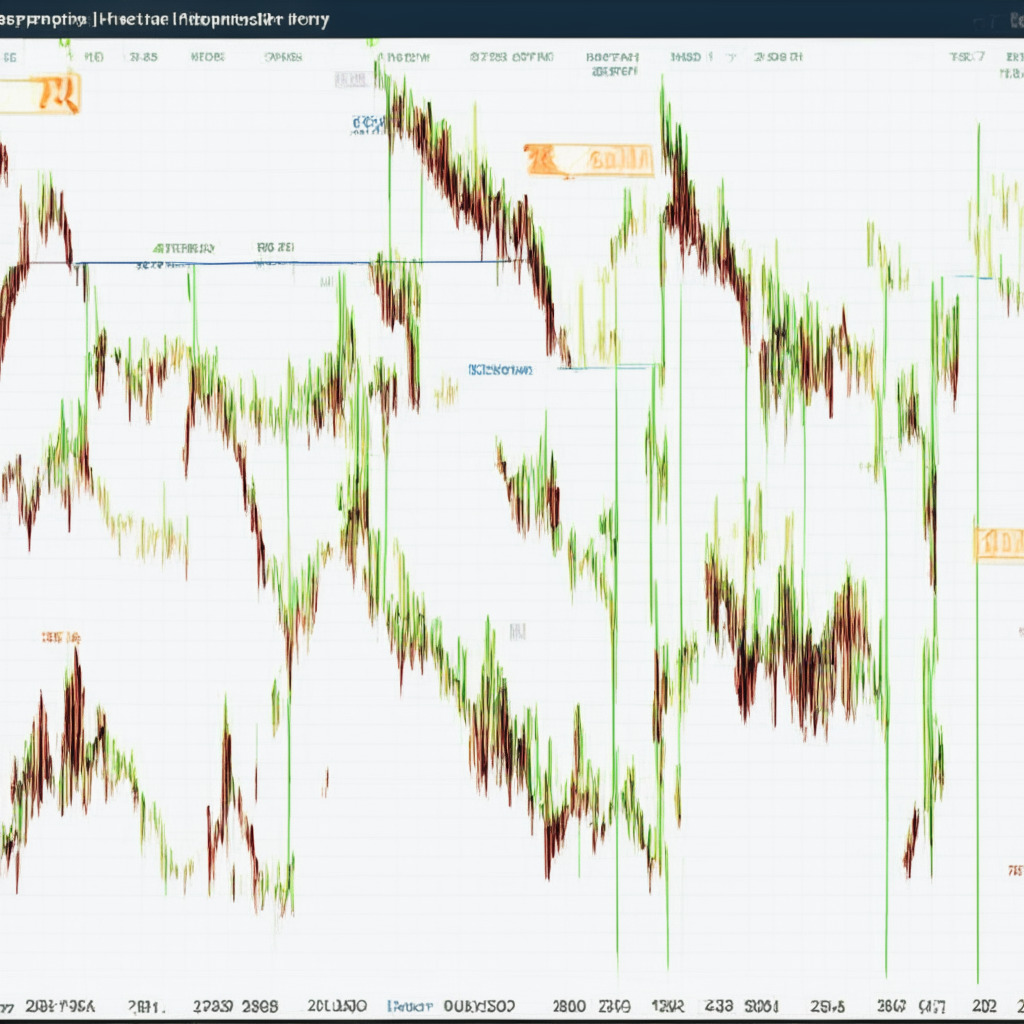While traders thrive on volatility, the bitcoin market has recently found itself in a stifling calm. Even Wednesday’s Federal Rate hike barely caused a ripple. Now, it is conjectured that Japan’s central bank could be the key to stirring energy back into the cryptocurrency markets.
The Bank of Japan (BOJ), the world’s third largest central bank, has been actively pursuing a pro-liquidity agenda. This Friday, some anticipate that the BOJ might shift tactics, potentially relaxing their hold on national bond markets. These ripples could resonate through global bond markets, effecting exchange rates, liquidity conditions and, by extension, cryptocurrencies.
The core of the intrigue lies in the BOJ’s yield curve control (YCC) policy, an aggressive strategy that has been buying up government bonds to maintain a near-0% yield on 10-year government bonds. This proactive campaign has inflated global liquidity and left an indelible mark on bond yields internationally. In December, the bank allowed for these yields to fluctuate within a 50-basis point band, however, that bracket could soon be doubled. A widening of this band could signal a slight withdrawal from the bond buying fervour, inadvertently tapering down the pro-liquidity impetus.
Yet, widening the band could also imply that the BOJ had over-reached and lost the ability to control the yield, an interpretation echoed by Goldman Sachs’ economics research team. Some even speculate that radical change is on the horizon: BNP Paribas expects a quadrupling in the yield band and the IMF has advised Japan to distance itself from the YCC strategy altogether, preparing for an increment in interest rates.
These shifts may seem removed from the Bitcoin Market, yet the close interrelation between global finance and cryptocurrency denies such a benign interpretation. At various points, cryptocurrency has found itself dancing in tandem with changes in bond yields, bond market volatility, the dollar index and, of course, global liquidity conditions. More specifically, this indirect tinkering with the monetary policy may cause a ripple effect through financial markets, influencing exchange rates and global risk premiums.
This prediction seems worst in the context of Japanese finance. Japan, the world’s largest creditor nation, boasting net external assets of 418.63 trillion yen ($3 trillion), could see its yields soar with any potential YCC tweak. This may spook Japanese investors, potentially leading to a sell-off of foreign bond holdings for domestic bonds. Such a move would likely increase foreign bond yields, disrupt the flow of money into risk assets and, ultimately result in a tumultuous ride for crypto markets.
These anticipated shifts comes at a crucial time, with bond markets already jittery due to ongoing hiking cycles. The world will be watching closely to see if the BOJ policy reversals manifest and, if they do, how they impact not only global yields, but the valuable and volatile world of cryptocurrencies. As things stand, Bitcoin was trading at $29,470, a modest 0.4% gain on the day.
Source: Coindesk




